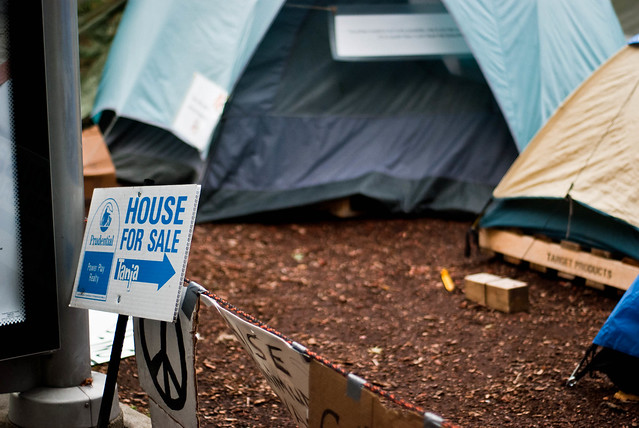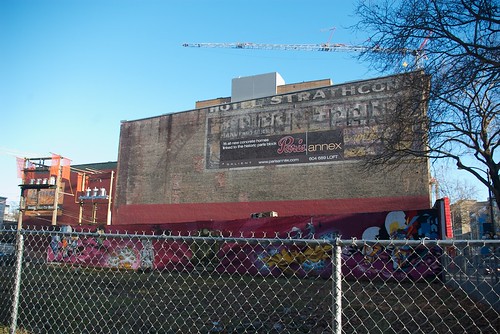
Today the mayor announced that the city will be attempting to end the occupation of the Vancouver Art Gallery. The announcement comes as a surprise for some who have been following. So far the only candidates in the municipal election calling for the eviction of the VAG have been from the right-wing NPA and their blog at citycaucus. In reality the mayor and council have used forced to shut down tent cities ever since being elected in 2008.
In the three years since 2008, Vision Vancouver and Robertson have evicted all major tent cities and arrested dozens of housing activists at shelters and empty housing projects across the city. Maybe the question today is not why the Mayor has announced the closure of the occupation, but rather why it has been allowed to stay as long as it has?
After setting up on October 15, the mayor stated twice in separate sessions at city council that he would not order the removal of the camp at the VAG. In the weeks after the first tent, the Canadian occupations were deemed harmless to the Canadian elite, framed more as re-enactments of Occupy Wall Street than as local interventions. The Prime Minister argued that “we didn’t bail out our banking sector,” and news outlets across Canada doubled down on the talking-point that the Canadian occupations could not last for long, with no anchor in local issues. This was also the sentiment in the air in Vancouver, where the Mayor judged that the occupation was a “symbolic” protest that would disappear as the winter weather arrived.
Despite feeling safe from imminent eviction, we campers still worried about the ‘NO CAMPING’ signs posted about the Art Gallery grounds, which referenced the city’s unconstitutional structures by-law. In response, Mainlander writers posted an article about whether or not the by-law would be used to shut down the occupation, arguing that we should be ready for anything, since “for the police and city managers of Vancouver, every protest is legal up to a point — in so far as the status quo does not change.”
This turning point was October 22, after the first big march of 1,000 people on the banks.


